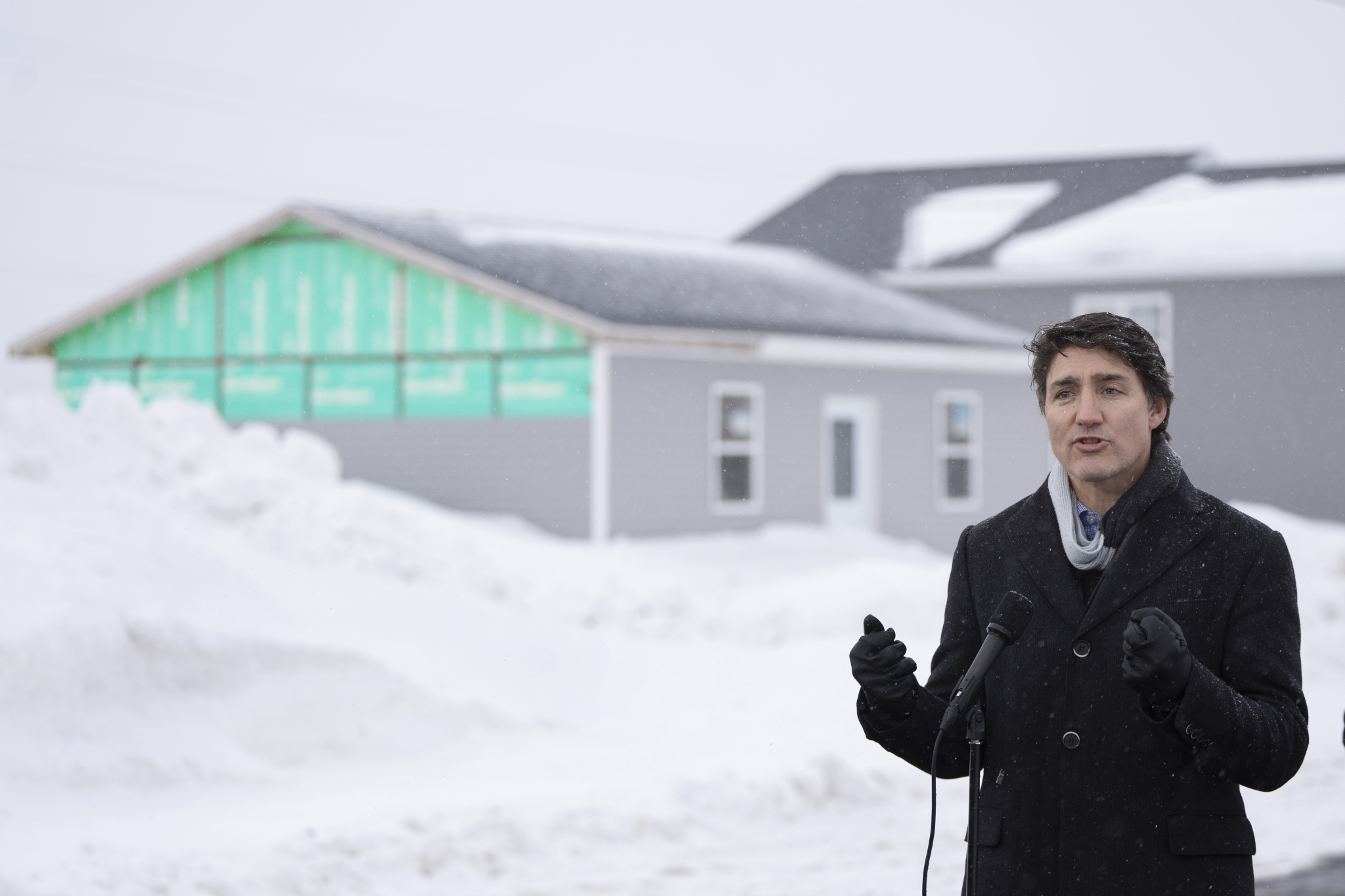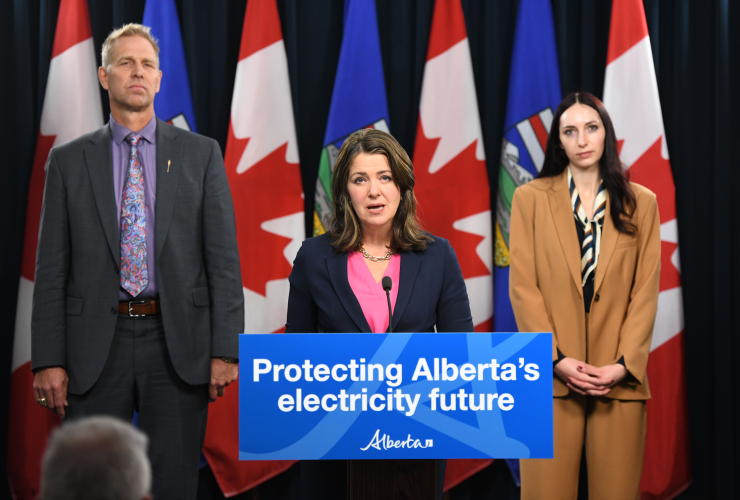The famous "walk in the snow" that purportedly spurred Pierre Trudeau's departure as prime minister 40 years ago has taken on such mythical proportions in Canadian politics that it even has its own Wikipedia entry.
"Noun. (Canada, chiefly politics, idiomatic). An occasion when a momentous career decision is made, especially a decision to resign or retire."
Some consider it an apocryphal story: Trudeau, confronted with the reality of a resurgent Conservative party, made up his mind to step down while strolling through a blizzard on Feb. 28, 1984.
Might not his footsteps-following son — facing strikingly similar electoral math — opt to follow suit?
Those closest to him are clear: not a chance.
If the prime minister was resigning, one Liberal insider said, using decidedly unparliamentary language to emphasize the point, there's no way he would do it on the same day as his father.
There's no snow in the Ottawa forecast, noted another. In fact, on the very anniversary itself Wednesday, it poured rain.
No one in Trudeau's inner circle was willing to speak publicly about the subject, lest it be taken as a message to the man himself. But veterans of political life, those who have seen up close how leaders wrestle with such dilemmas, say it often comes down to two things: how likely they are to win again, and whether they accomplished their goals.
Sometimes, it can be both.
There's no denying the parallels: A Liberal establishment, long in the tooth and down in the polls, faced with a difficult economic climate, inflation woes and a fresh-faced opponent with all the momentum.
It's even a leap year, just like in 1984.
But Trudeau has long dismissed, even mocked, the suggestion that he's done.
He's been stalking the starting line for months, anxious to defend his track record against Conservative Leader Pierre Poilievre — his political and ideological antithesis, who sits atop a groundswell of popular momentum.
He would "bring us back to, 'Drill, baby, drill,' ignore climate change, bring us back to 'Father is the head of the household,'" Trudeau said of Poilievre last year in an interview with friend and former radio host Terry DiMonte.
"It's that kind of thinking that is really putting at threat everything we’ve been able as a country to build over the past years."
If an election were held today, polls suggest Trudeau's time in power would end. But with his party's agreement with the New Democrats, he could govern for another year and a half.
Few leaders decide on a whim that it's time to go, said former Manitoba Premier Gary Doer, who stepped down from his job in 2009 two years into his third majority government.
From the moment he first sat in the premier's chair, the plan was always to leave before being pushed, Doer said.
"You're always thinking of your legacy," he said.
"You're trying to define as much as possible your own legacy, because God knows there's lots of pundits who will try and define it for you the minute you step down."
Doer's final decision came when then-prime minister Stephen Harper approached him about becoming Canada's ambassador in Washington. Timing is always key but not always in your control, he said.
On the other hand, if the time has indeed arrived, the world can't know it, Doer added.
"The minute you announce that you're not running, you become weak and the media and public's focus just shifts right away to who's going to replace you," he said. "It's almost instantaneous."
That means Trudeau is running again until he decides he's not. Even speculation with close cabinet colleagues about the possibility of a future resignation could easily leak and create havoc, the insiders said.
There is, of course, lots of chatter about his would-be successor. But within the party itself, there are no hands on his back. Cabinet ministers weary of deflecting the question have settled on their message.
"We (already) have a leader," Finance Minister Chrystia Freeland told a recent news conference in Ottawa as her fellow ministers all nodded enthusiastically in agreement.
Stepping down in defeat is more common than leaving while in office. Of the 22 prime ministers who held the office before Justin Trudeau, 12 resigned their post after losing an election.
Two died in office, including Canada's first prime minister John A. Macdonald. Macdonald resigned as prime minister once, but stayed on as the leader of his party, and was re-elected as prime minister four years later.
Of the eight that stepped away of their own accord from both their party's leadership and the prime minister's post, three cited declining health, not a political motive.
For the other five, they left when they were ready to go.
Pierre Trudeau had been prime minister for more than 15 years total when he took his walk in the snow. If his flair for the dramatic made the decision seem like a spur-of-the-moment one, it was decidedly not.
In fact, it was carefully calculated, said Raymond Blake, a history professor at the University of Regina who is about to publish a new book on the speeches of Canada's prime ministers.
"Everyone knew he was going to resign but of course he had to do it on the 29th, in a leap year," Blake said.
"It was very much planned. He could have resigned on the 28th or the first of March. But that mystique, that celebrity, means you can't do it on a day any mere mortal would."
More typically, there's not much suspense before it happens.
When Brian Mulroney announced his exit in February 1993 after nearly nine years in office, he looked like a man who'd lost the vigour for the job.
In a journal entry published in Mulroney's book, "Memoirs," he said it was long before he lost the constitutional referendum in 1992 that he had decided against leading the Tories in the next campaign.
The reason, he wrote in January 1993, about two months before the announcement, was simple.
"If you run again and win, either a majority or a minority government, what do you want to achieve? And my answer simply is, 'more of the same,'" he wrote.
"I do not believe that honest answer to be adequate, so I will step aside."
When it happened, polls showed the Conservatives with just 21 per cent public support, compared with 49 per cent for the Liberals under Jean Chrétien.
Chrétien also left before losing an election, midway through his third majority government. He was facing a revolt from Paul Martin and Martin's supporters. But he had decided by the time of the 2000 election not to seek a fourth term.
It wouldn't be made public for another two years, and he would stay in the office for another 15 months before Martin was ultimately elected as the leader to replace him.
In January, in an interview with CTV, Chrétien said the decision to leave is a very "personal" one.
If there are any commonalities among leaders who choose to leave, Doer said, it's that they need to do it on their own terms, when they feel the time is right.
"There's not a politician that doesn't watch what happens to other politicians and how they make the transition," he said.
"And not just how, but when."
This report by The Canadian Press was first published Feb. 29, 2024.





Comments